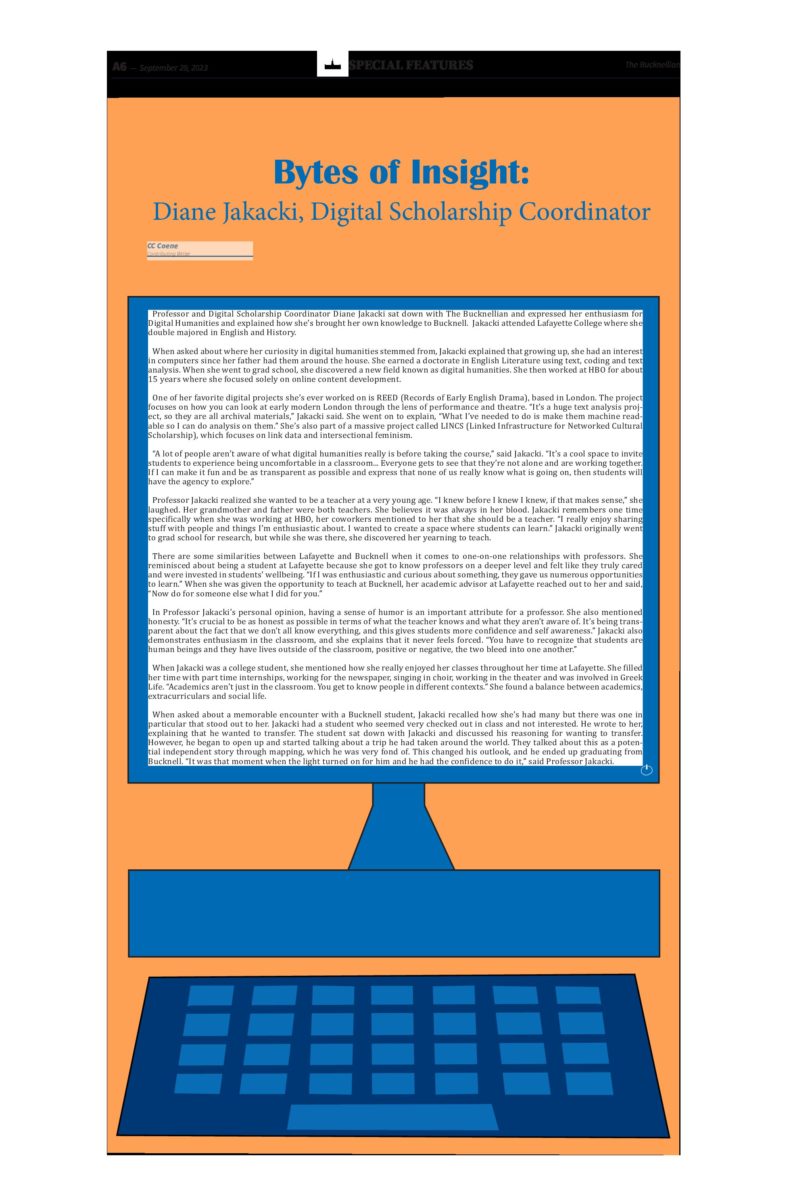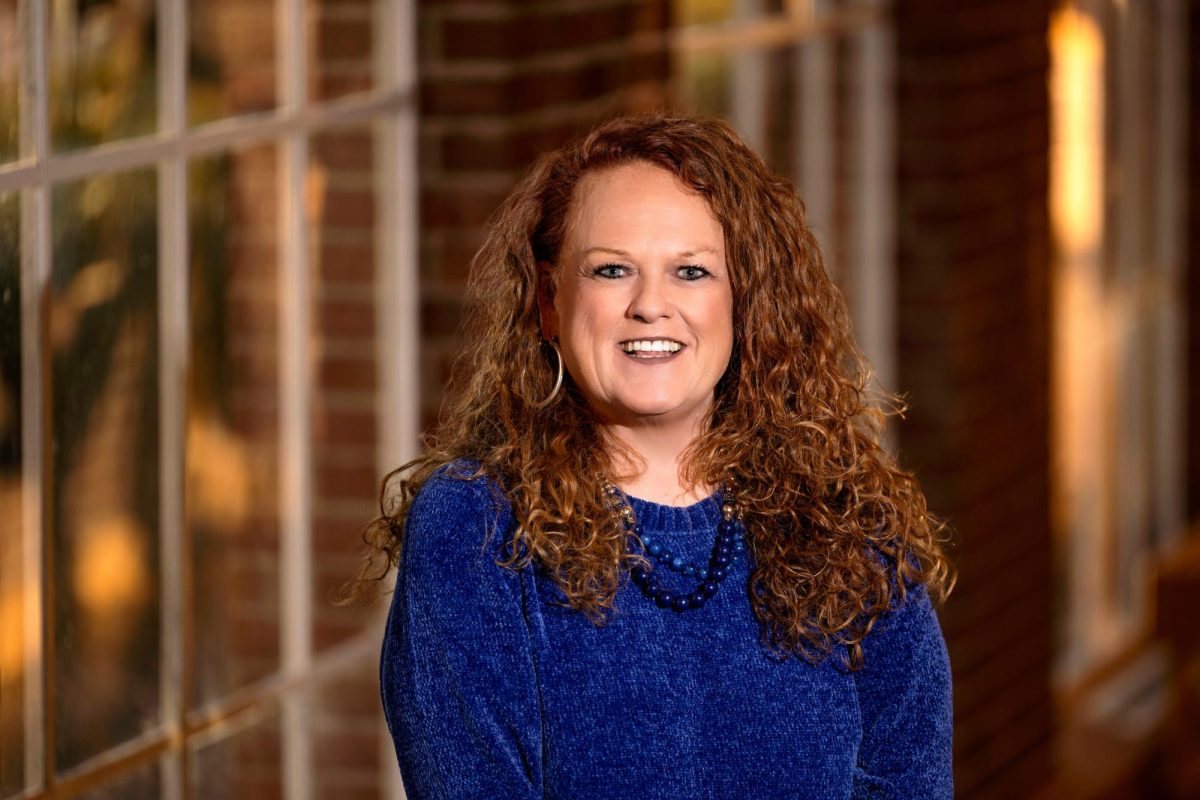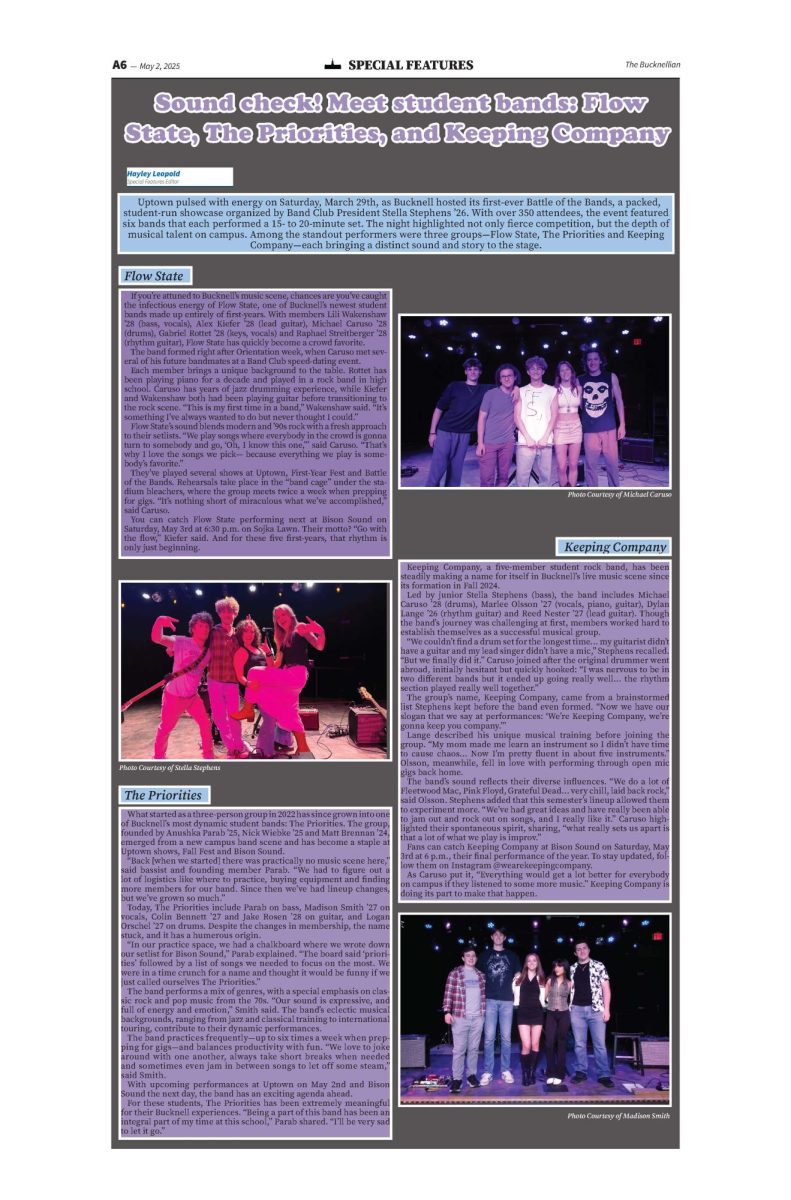Professor and Digital Scholarship Coordinator Diane Jakacki sat down with The Bucknellian and expressed her enthusiasm for Digital Humanities and explained how she’s brought her own knowledge to Bucknell.
Jakacki attended Lafayette College where she double majored in English and History.
When asked about where her curiosity in digital humanities stemmed from, Jakacki explained that growing up, she had an interest in computers since her father had them around the house. She earned a doctorate in English Literature using text, coding and text analysis. When she went to grad school, she discovered a new field known as digital humanities. She then worked at HBO for about 15 years where she focused solely on online content development.
One of her favorite digital projects she’s ever worked on is REED (Records of Early English Drama), based in London. The project focuses on how you can look at early modern London through the lens of performance and theatre. “It’s a huge text analysis project, so they are all archival materials,” Jakacki said. She went on to explain, “What I’ve needed to do is make them machine readable so I can do analysis on them.” She’s also part of a massive project called LINCS (Linked Infrastructure for Networked Cultural Scholarship), which focuses on link data and intersectional feminism.
“A lot of people aren’t aware of what digital humanities really is before taking the course,” said Jakacki. “It’s a cool space to invite students to experience being uncomfortable in a classroom… Everyone gets to see that they’re not alone and are working together. If I can make it fun and be as transparent as possible and express that none of us really know what is going on, then students will have the agency to explore.”
Professor Jakacki realized she wanted to be a teacher at a very young age. “I knew before I knew I knew, if that makes sense,” she laughed. Her grandmother and father were both teachers. She believes it was always in her blood. Jakacki remembers one time specifically when she was working at HBO, her coworkers mentioned to her that she should be a teacher. “I really enjoy sharing stuff with people and things I’m enthusiastic about. I wanted to create a space where students can learn.” Jakacki originally went to grad school for research, but while she was there, she discovered her yearning to teach.
There are some similarities between Lafayette and Bucknell when it comes to one-on-one relationships with professors. She reminisced about being a student at Lafayette because she got to know professors on a deeper level and felt like they truly cared and were invested in students’ wellbeing. “If I was enthusiastic and curious about something, they gave us numerous opportunities to learn.” When she was given the opportunity to teach at Bucknell, her academic advisor at Lafayette reached out to her and said, “Now do for someone else what I did for you.”
In Professor Jakacki’s personal opinion, having a sense of humor is an important attribute for a professor. She also mentioned honesty. “It’s crucial to be as honest as possible in terms of what the teacher knows and what they aren’t aware of. It’s being transparent about the fact that we don’t all know everything, and this gives students more confidence and self awareness.” Jakacki also demonstrates enthusiasm in the classroom, and she explains that it never feels forced. “You have to recognize that students are human beings and they have lives outside of the classroom, positive or negative, the two bleed into one another.”
When Jakacki was a college student, she mentioned how she really enjoyed her classes throughout her time at Lafayette. She filled her time with part time internships, working for the newspaper, singing in choir, working in the theater and was involved in Greek Life. “Academics aren’t just in the classroom. You get to know people in different contexts.” She found a balance between academics, extracurriculars and social life.
When asked about a memorable encounter with a Bucknell student, Jakacki recalled how she’s had many but there was one in particular that stood out to her. Jakacki had a student who seemed very checked out in class and not interested. He wrote to her, explaining that he wanted to transfer. The student sat down with Jakacki and discussed his reasoning for wanting to transfer. However, he began to open up and started talking about a trip he had taken around the world. They talked about this as a potential independent story through mapping, which he was very fond of. This changed his outlook, and he ended up graduating from Bucknell. “It was that moment when the light turned on for him and he had the confidence to do it,” said Professor Jakacki.























